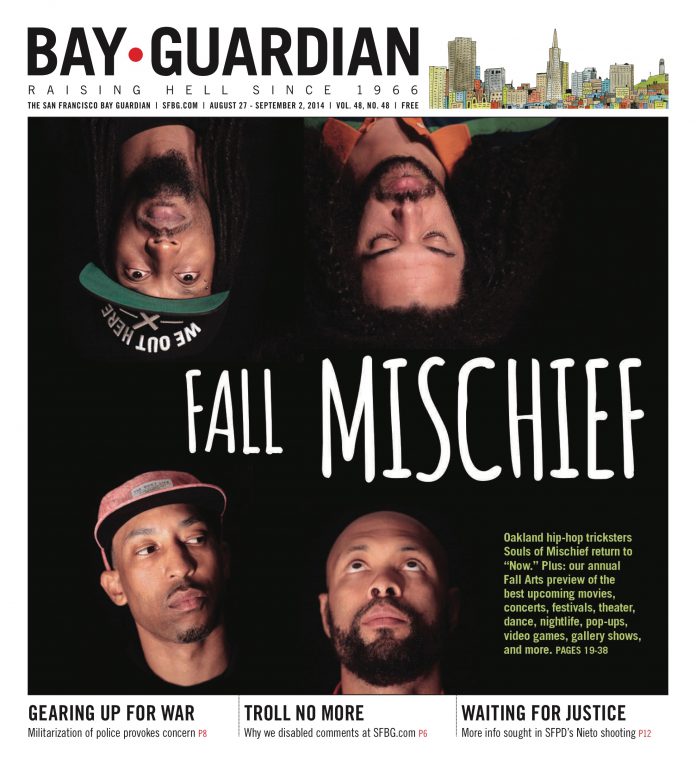EDITORIAL We’ve heard quite a bit of reader feedback to our decision last week to indefinitely suspend comments on our SFBG.com website (see “Troll no more,” page 14), most of it positive. While the Internet’s potential to democratize communications has long been one of its greatest assets, the incivility and bullying fed by the anonymity of online comments have undermined that potential, and a growing number of people think the tradeoff is no longer worth it.
“Finally a media outlet that has the guts and forethought to cut a commentary section that lends nothing to the topics it writes about! I am probably one of the many (and I am of the Internet generation) who has grown weary of the comments sections on blogs, online papers, etc,” reader Jola Zandecki wrote in an email to us. “Thank you for ‘draining the swamp’!!! I hope other outlets follow your suit.”
Some publications are, while others with the resources to do so are actively policing their websites and/or requiring commenters to register under their real identities, both steps that we’ll consider when deciding whether to allow comments on our new website. In the meantime, online discussions of our articles are still happening on Facebook and other sites, including a vigorous discussion of last week’s cover story (“Burning Man jumps the shark”).
On Twitter, responses to our comments decision ranged from “I wholeheartedly support the SF Bay Guardian‘s decision to disable comments” (by Lun Esex) and “I’m actually glad @sfbg’s killing comments; sometimes I didn’t want to link to stories, just cuz of awful comments” (by Kagan MacTane) to Castro gadfly Michael Petrelis accusing us of censorship and writing “Stalin would B proud.” A few of our other persistent critics also privately decried the loss of an online avenue to undermine our work.
That isn’t censorship. There are plenty of public ways to criticize or challenge what appears or doesn’t appear in the Guardian, as Petrelis well knows given how incessantly he criticizes us and other local news and political entities. But we don’t need to host that kind of bile and negativity, which does nothing to create a productive public conversation.
The New York Times took on the issue as its lead Sunday Review story just days after our decision (“Dealing with Digital Cruelty,” Aug. 23), citing both anecdotes and polling data indicating that people are fed up with trolls and the tone of online communications.
“Trolls, who some researchers think could be mentally unbalanced, say the kinds of things that do not warrant deep introspection; their singular goal is to elicit pain,” Stephanie Rosenbloom wrote in The Times.
So as we do our part to try to alleviate the pain of reading articles on the Internet, we’ll continue to solicit constructive feedback from readers, through online tools, community forums (our next one is Oct. 9), and special print features based on public input. Thanks for reading.

